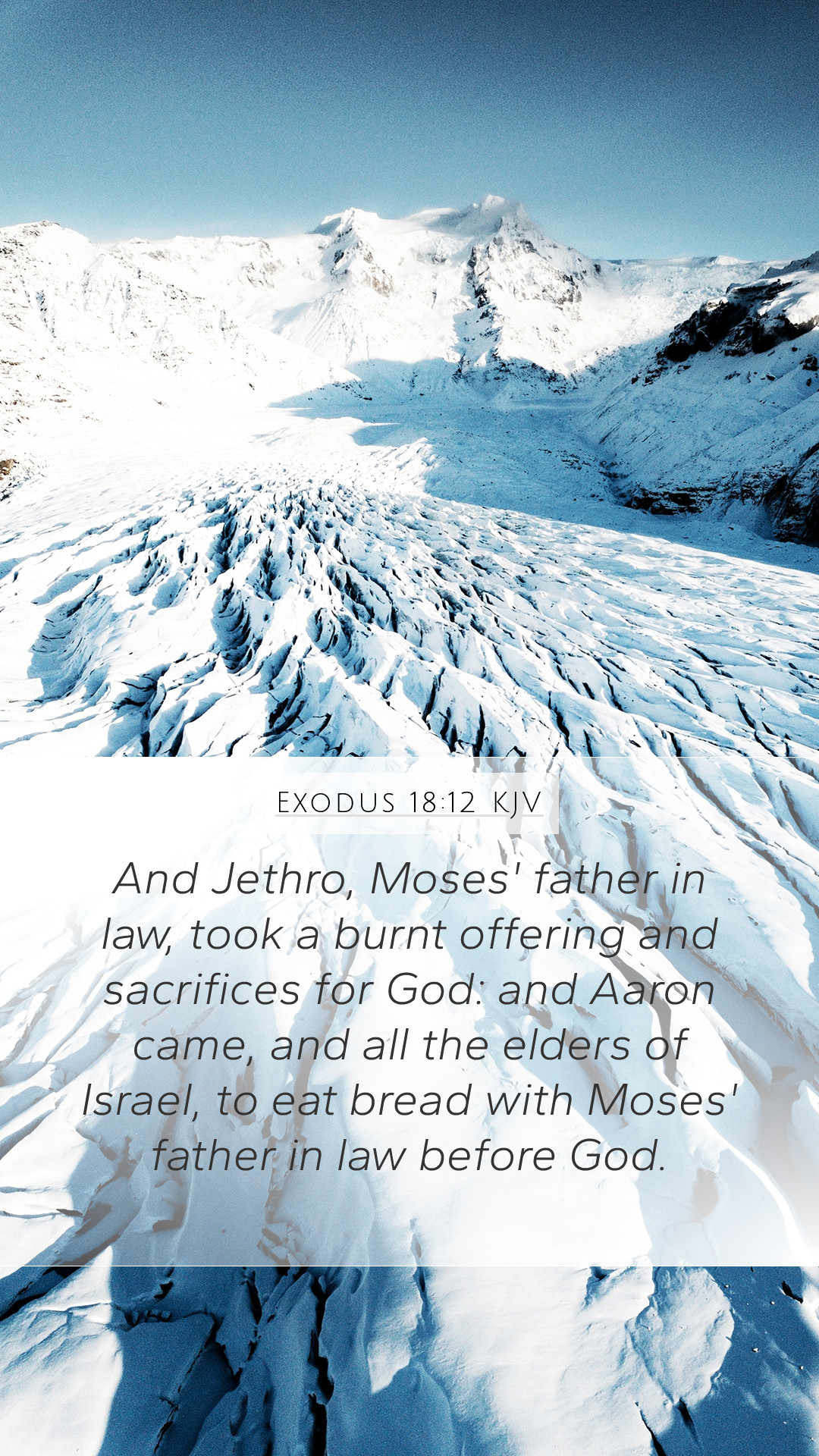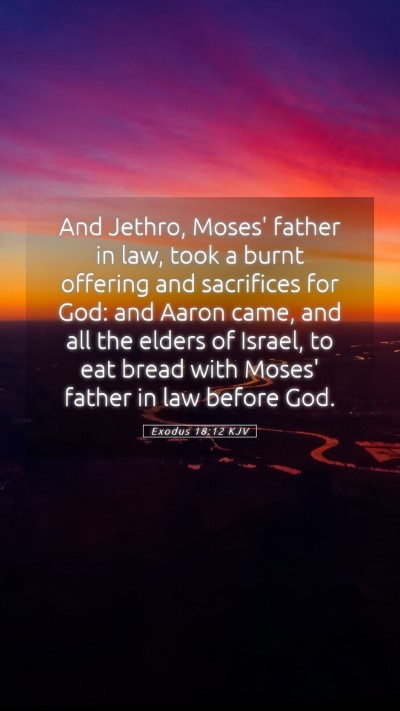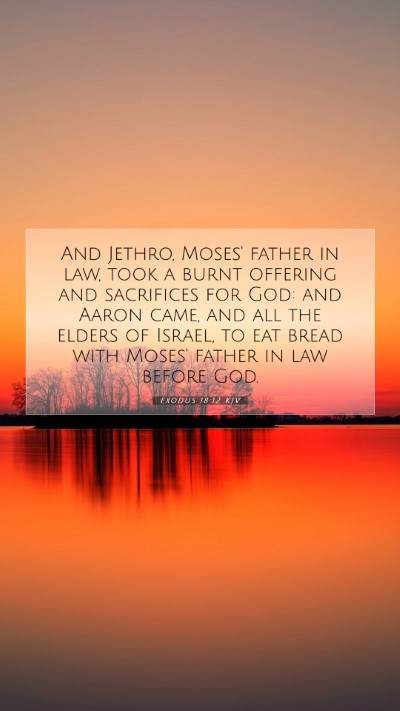Exodus 18:12 - Meaning and Commentary
In Exodus 18:12, we see a significant moment in the story of Moses and the Israelite nation, where Jethro, Moses’ father-in-law, observes the heavy burden Moses carries as a leader. This verse provides profound insights into the nature of leadership, the importance of delegation, and community support. Below, we will explore the meaning of this Bible verse through the lens of various public domain commentaries, offering a comprehensive understanding of its implications in both historical context and modern application.
Verse Text
Exodus 18:12 (KJV): "And Jethro, Moses' father in law, took a burnt offering and sacrifices for God: and Aaron came, and all the elders of Israel, to eat bread with Moses' father in law before God."
Summary of Commentary Insights
The commentary on Exodus 18:12 reflects on several key themes:
- The Role of Jethro: Jethro's advice signifies wisdom and experience. He not only brought offerings but also counsel to Moses on leadership and governance.
- Burnt Offerings: The act of making burnt offerings demonstrates the importance of worship and gratitude towards God within community gatherings.
- Community Support: The gathering of elders emphasizes the need for collective responsibility and support in leadership roles.
- Delegation of Duties: Jethro’s suggestion to Moses about delegating lesser matters to others illustrates the practicality of shared leadership, ensuring that Moses does not bear all responsibilities alone.
- Covenant Relationship: The phrase "before God" reminds us of the covenant relationship between God and His people, emphasizing accountability and holiness in actions.
Insights from Public Domain Commentaries
Matthew Henry's Commentary
Henry points out that Jethro’s actions reflect a reverence for God and the need for peace offerings in acknowledging God’s providence. The elders’ participation showcases an inclusive approach in recognizing God’s blessings in community.
Albert Barnes' Notes
Barnes emphasizes that Jethro recognized the weighty leadership challenge Moses faced. He provides insight on the necessity of shared leadership to prevent burnout and discontent among the people, resulting in a more effective governance structure.
Adam Clarke's Commentary
Clarke sheds light on the cultural practices surrounding burnt offerings, indicating that communal meals were a significant aspect of sacrificial activities. He highlights the importance of fellowship among leaders and the reaffirmation of divine guidance through communal worship.
Significance for Today's Readers
Understanding Exodus 18:12 is crucial for modern believers seeking Bible verse interpretations related to leadership, community, and worship. The insights derived from this passage are applicable to:
- Recognizing the importance of support systems in leadership roles.
- Applying the principles of delegation in both secular and church settings.
- Maintaining a heart of worship while engaging in community responsibilities.
- Encouraging collective participation in decision-making processes.
Cross References
- Exodus 18:13-27 - Jethro’s advice leads to a system of judges.
- Numbers 11:14-17 - Moses sharing burdens with elders.
- Acts 6:1-7 - The apostles delegating responsibilities within the church.
Conclusion
Exodus 18:12 is a rich verse that encapsulates vital lessons on community, leadership, and the relationship believers have with God through worship. Through a combination of insights from historical commentaries, we gain a deeper understanding of Scripture that can inspire our daily lives and leadership practices.
Further Study Resources
For those engaging in Bible study groups or seeking online Bible study tools, this verse can serve as a focal point for discussions on:
- Leadership in the church versus secular organizations.
- The importance of community and fellowship as described in Scripture.
- The relationship between worship and leadership responsibilities.


